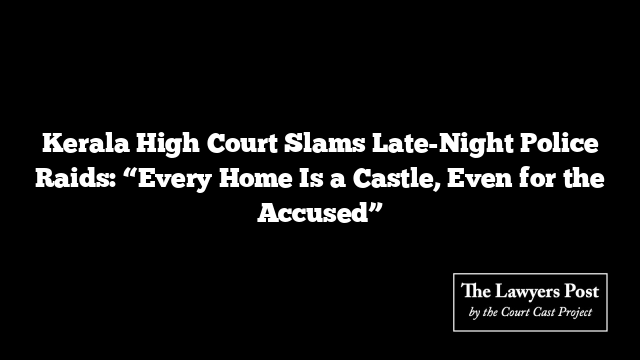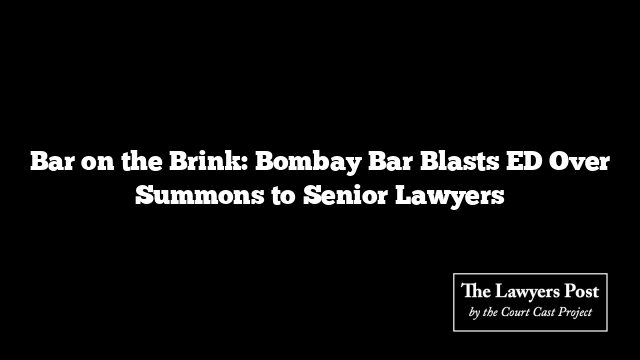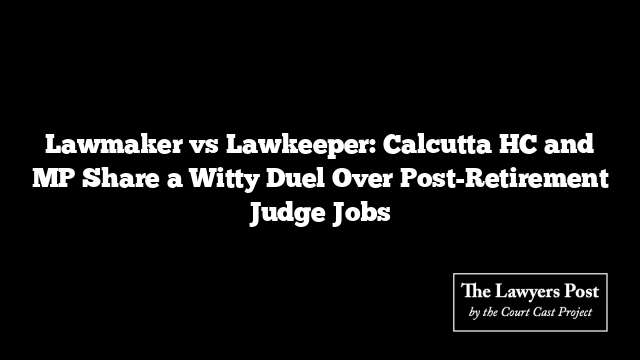The Kerala High Court has drawn a firm constitutional line in the sand: police officers cannot pound on doors or enter homes of so-called “history sheeters” in the dead of night under the pretense of surveillance.
Justice VG Arun, delivering a sharp rebuke to late-night policing tactics, made it clear that such intrusions trample on the right to privacy guaranteed under Article 21 of the Constitution. Referencing Supreme Court precedents like Kharak Singh v. State of UP and KS Puttaswamy v. Union of India, the judge stated: “Every man’s house is his castle or temple, the sanctity of which cannot be vilified by knocking on the door at odd hours.”
The ruling came in response to a petition filed by Prasath C, who was charged under Section 117(e) of the Kerala Police Act after allegedly intimidating officers who showed up at his Kochi home at 1:30 am on April 3, 2025. The police defended their visit as standard surveillance, citing Prasath’s status as a “rowdy history sheeter.”
But Prasath saw it differently. According to him, this was part of a pattern of harassment post-acquittal in a POCSO case filed by the same station. His claim: retaliation in uniform. He even alleged that he was assaulted at the station the next day.
Previously, Prasath had moved the court with another petition, prompting an official inquiry into his allegations by the Home Department. Now, with this new plea, he sought to have the criminal proceedings against him dropped.
The Court, after poring over the Kerala Police Manual, found nothing that allowed such nocturnal intrusions. Surveillance, it noted, is meant to be discreet and respectful—not a 1:30 am door-banging operation. “Informal watching” and “close watch” were the terms used in the manual, none of which, the Court emphasized, justifies home visits during ungodly hours.
Also rejected was the idea that officers could summon someone out of their home at that hour under Section 39 of the Kerala Police Act. That, the Court said, could not be deemed a “lawful direction.”
While the judge left open the possibility that threatening conduct by Prasath—if proven—could be prosecuted under other laws, all proceedings linked to the midnight police visit were thrown out.
The courtroom clash brought into sharp focus the delicate balance between state surveillance and personal liberty. And in this case, the scales tipped in favor of the Constitution.





